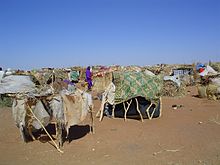List of countries where United Nations peacekeepers are currently deployed


This is a list of countries where United Nations peacekeepers are currently deployed, as of January 2007, with year of initial deployment, the name of the conflict, and the name of the UN operation. Peacekeeping, as defined by the United Nations, is a way to help countries torn by present and prior conflict create conditions for sustainable peace. UN peacekeepers—soldiers and military officers, civilian police officers and civilian personnel from many countries—monitor and observe peace processes that emerge in post-conflict situations and assist ex-combatants in implementing the peace agreements they have signed. Such assistance comes in many forms, including confidence-building measures, power-sharing arrangements, electoral support, strengthening the rule of law, and economic and social development. All operations must include the resolution of conflicts through the use of force to be considered valid under the charter of the United Nations.

The Charter of the United Nations gives the UN Security Council the power and responsibility to take collective action to maintain international peace and security. For this reason, the international community usually looks to the Security Council to authorize peacekeeping operations. Most of these operations are established and implemented by the United Nations itself with troops serving under UN operational command. In other cases, where direct UN involvement is not considered appropriate or feasible, the Council authorizes regional organizations such as the North Atlantic Treaty Organisation, the Economic Community of West African States or coalitions of willing countries to implement certain peacekeeping or peace enforcement functions. In modern times, peacekeeping operations have evolved into many different functions, including diplomatic relations with other countries, international bodies of justice (such as the International Criminal Court), and eliminating problems such as landmines that can lead to new incidents of fighting.
Africa
| Location | Flag | Start of operation | Conflict | Name of Operation |
|---|---|---|---|---|
| Côte d'Ivoire | 2004 | Civil war in Côte d'Ivoire | United Nations Operation in Côte d'Ivoire (UNOCI)[1] | |
| Democratic Republic of Congo | 1999 | Second Congo War | United Nations Organization Mission in the Democratic Republic of the Congo (MONUC)[2] | |
| Liberia | 2003 | Second Liberian Civil War | United Nations Mission in Liberia (UNMIL)[3] | |
| Eritrea | 2000 | Eritrean-Ethiopian War | United Nations Mission in Ethiopia and Eritrea (UNMEE)[4] | |
| Ethiopia | ||||
| Sudan | 2005 | North/South Civil War | United Nations Mission in the Sudan (UNMIS)[5] | |
| Western Sahara | 1991 | Moroccan occupation of Western Sahara | United Nations Mission for the Referendum in Western Sahara (MINURSO)[6] |
Americas
| Location | Flag | Start of operation | Conflict | Name of Operation |
|---|---|---|---|---|
| Haiti | 2004 | 2004 Haiti rebellion | United Nations Stabilization Mission in Haiti (MINUSTAH)[7] |
Asia
| Location | Flag | Start of operation | Conflict | Name of Operation |
|---|---|---|---|---|
| Pakistan | 1949 | Indo-Pakistani Wars | United Nations Military Observer Group in India and Pakistan (UNMOGIP)[8] | |
| India | ||||
| East Timor | 2006 | 2006 East Timor crisis | United Nations Integrated Mission in Timor-Leste (UNMIT)[9] |
Europe
| Location | Flag | Start of operation | Conflict | Name of Operation |
|---|---|---|---|---|
| Cyprus | 1964 | Cyprus dispute | United Nations Peacekeeping Force in Cyprus (UNFICYP)[10] | |
| Georgia | 1993 | Abkhazian War | United Nations Observer Mission in Georgia (UNOMIG)[11] | |
| Serbia | 1999 | Kosovo War | United Nations Interim Administration Mission in Kosovo (UNMIK)[12] |
Middle East
| Location | Flag | Start of operation | Conflict | Name of Operation |
|---|---|---|---|---|
| Golan Heights | 1974 | Agreed withdrawal by Syrian and Israeli forces following the Yom Kippur War. | United Nations Disengagement Observer Force (UNDOF)[13] | |
| Lebanon | 1978 | Confirms the withdrawal of Israeli forces from Lebanon | United Nations Interim Force in Lebanon (UNIFIL)[14] | |
| Middle East | 1948 | (Monitors the various ceasefires and assists UNDOF and UNIFIL) | United Nations Truce Supervision Organization (UNTSO)[15] |
1 Almost all foreign governments and the United Nations recognise the sovereignty of the Republic of Cyprus over the whole island of Cyprus.
2 Various regions of the Golan Heights have been claimed by Israel, Lebanon, and Syria; all three flags are shown, in alphabetical order.
3 There is no officially recognized flag of the entire region of the Middle East. Shown is a map of the Middle East.
See also
References
